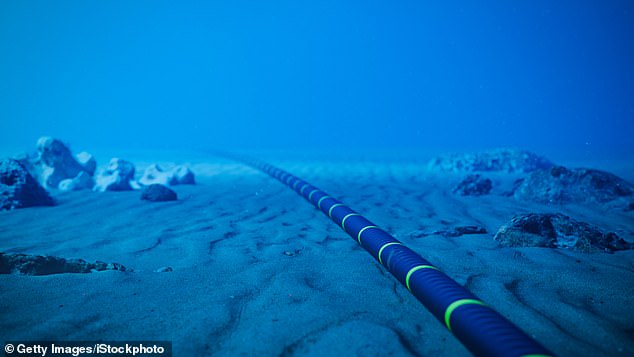
Meta Unveils 50,000km Undersea Cable Network Surpassing Earth’s Circumference as Longest Global Subsea Link
Meta Announces 50,000km Undersea Cable Amid Security Concerns
By Marti Stelling and Freya Barnes | Updated: 01:48 GMT, 18 February 2025
Meta, owner of Facebook, Instagram, and WhatsApp, has unveiled plans to construct Project Waterworth—a 50,000km (31,000-mile) undersea cable connecting the U.S., India, Brazil, South Africa, and other regions. The ambitious project, set to be the world’s longest subsea cable, aims to enhance global internet connectivity and support AI development. However, it comes amid rising geopolitical tensions over vulnerabilities in underwater infrastructure.
[Image: Undersea cables illustration]
Project Waterworth will span five continents, including high-risk areas near coastlines.
Security Worries
Over 95% of global internet traffic relies on undersea cables, but recent incidents have exposed risks. In 2024, severed cables in the Baltic Sea prompted NATO to increase surveillance, while a UK parliamentary committee highlighted threats from "Russian and Chinese capabilities to target undersea infrastructure." Last year, Tonga faced a nationwide blackout after its sole cable was damaged.
Meta claims it will mitigate risks by burying the cable 7,000 meters deep in key areas and using "enhanced burial techniques" near coastlines. The move follows U.S. sanctions on a Russian firm accused of aiding Moscow’s underwater surveillance efforts.
[Image: Map of planned cable route]
The cable will link major markets, strengthening digital economies in India and Brazil.
Tech Ambitions
Project Waterworth’s 24-fiber-pair system promises faster data transfer than standard cables (8–16 fiber pairs). Meta stated it will boost AI innovation and digital inclusion, particularly in India, where Prime Minister Modi’s “Digital India” initiative is expanding access to online services.
“This project enables greater economic cooperation and technological growth,” Meta wrote in a blog post. The corporation has developed over 20 subsea cables in the past decade.
[Image: Meta AI research lab]
Meta’s AI projects rely heavily on robust data infrastructure.
Global Reactions
Experts warn that expanding undersea networks also escalates risks. “Cables are critical but fragile,” said cybersecurity analyst Dr. Elena Torres. “State-sponsored sabotage could disrupt entire economies.” Meanwhile, countries along the route, like Brazil and South Africa, anticipate the cable will reduce latency and support tech sectors.
Project Waterworth is expected to take five years to complete. If successful, it could reshape global data dynamics—or become a flashpoint in the digital cold war.
[Image: Workers repairing undersea cables]
Cable damage, whether accidental or deliberate, remains a major threat.
For now, Meta’s focus is on balancing innovation with security. “We’re committed to reliability,” added the company. “This is infrastructure for the future.”
Continued updates on this story at DailyMail.com.


